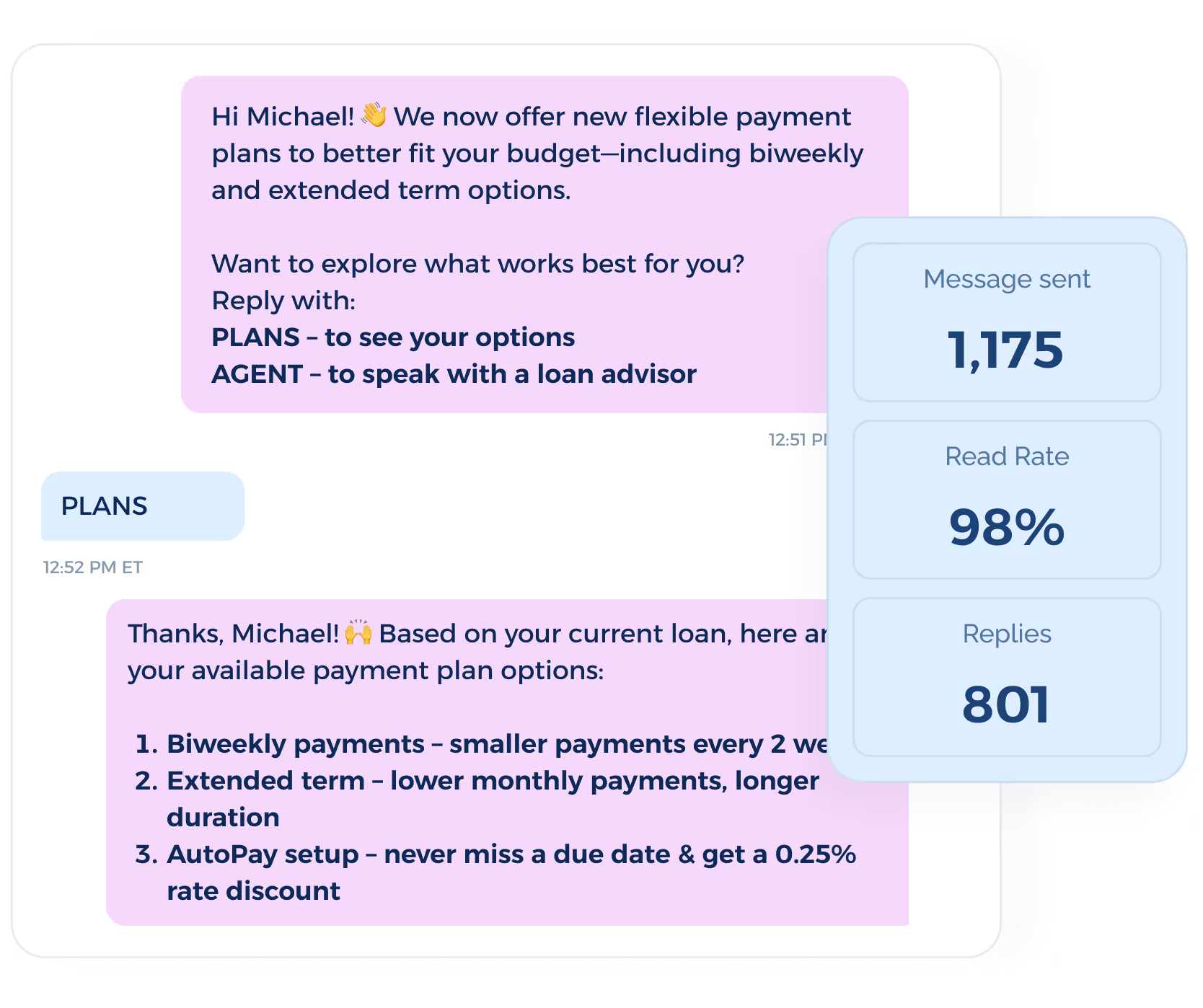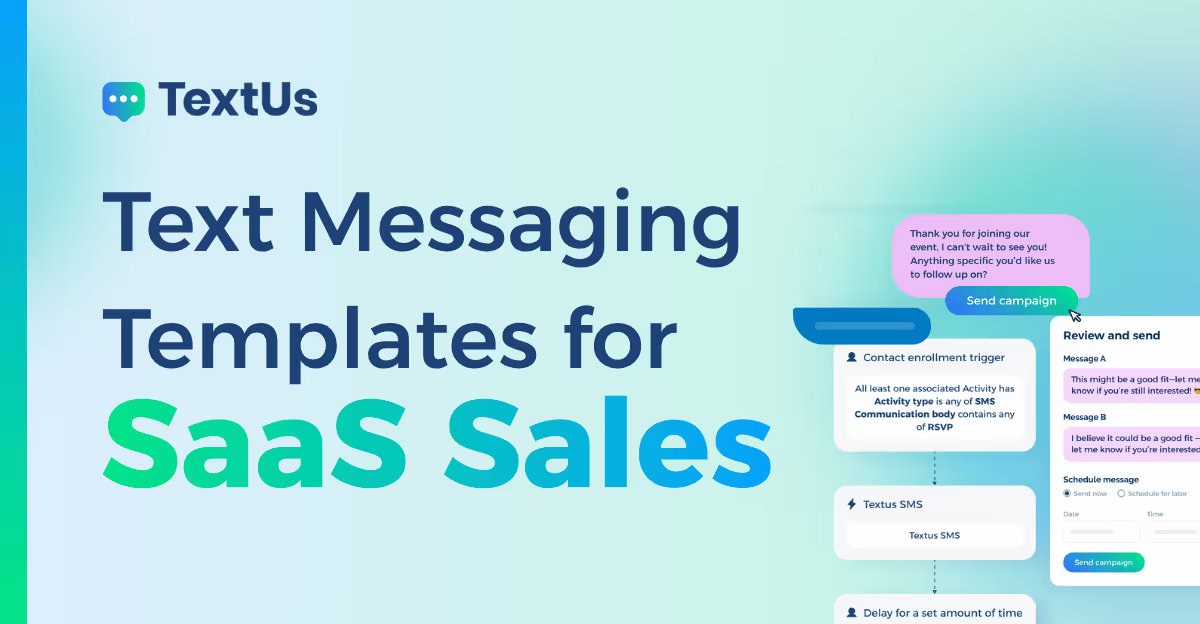Text Messaging for Debt Collection & Lending Services
For debt collectors, financial advisors, and lending solutions, text messaging has become a vital tool in their collection arsenal. SMS texts present a unique opportunity to connect with debtors quickly, discreetly, and in a manner that resonates with the habits of the modern consumer.
What You Can Do With TextUs
Explore powerful ways businesses use texting to connect, convert, and grow. From client outreach to CRM integration—SMS delivers real results.
Compliance
At the federal level, the Telephone Consumer Protection Act (TCPA) and the Fair Debt Collection Practices Act (FDCPA) establish the foundational guidelines for communicating with debtors.

Consent
Debt collectors must obtain explicit consent from the debtor, which can be gathered through various channels. This consent is a crucial legal requirement that protects both parties.

State Laws
State laws may introduce additional requirements or restrictions, making it essential for debt collectors to stay informed and adapt their strategies accordingly.

Debtor's Rights
Each SMS must contain clear instructions on how the debtor can opt out of receiving future messages, ensuring the process respects the recipient’s preferences and rights.

Power of Text Messaging
Discover powerful stats that highlight just how fast, effective, and preferred SMS is compared to other channels. The numbers speak for themselves.
Faster Responses. Smoother Closings. Proven ROI.
Explore high-impact messaging metrics that show how SMS accelerates communication and engagement in the lending industry.
89%
Of consumers prefer texting for business communication
45%
Response Rate for SMS vs. 6% for Email
95%
Texts are read within 3 minutes
The Preferred SMS Platform for Modern Agencies
TextUs helps marketing agencies and their clients convert more, connect smarter, and improve marketing performance. Whether you're managing lead generation for your own agency or running SMS campaigns for hundreds of clients, TextUs brings speed, scale, and data visibility to every conversation and conversion.
Create New Value for Your Clients
With white-label options, robust integrations, and automated outreach, you can turn SMS into a premium service that drives strong ROI for your clients and makes your agency stand out.



Texting Smarter Starts Here
Get expert advice, how-to guides, and stories from teams using texting to boost placements and save time.
Frequently Asked Questions
Get A TextUs
Demo Today
Learn how thousands of businesses use TextUs daily to communicate in real-time.
Getting started is easy. We provide a guided demo, compliance training, and onboarding support. Your team will learn how to send SMS messages from desktop, mobile, or browser extensions. Whether you’re managing accounts or setting up text messaging workflows, TextUs ensures fast setup and immediate results.
Getting Started With TextUs for Collections
Getting started is easy. We provide a guided demo, compliance training, and onboarding support. Your team will learn how to send SMS messages from desktop, mobile, or browser extensions. Whether you’re managing accounts or setting up text messaging workflows, TextUs ensures fast setup and immediate results.





